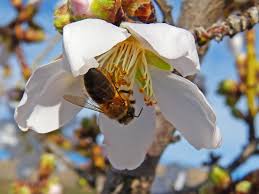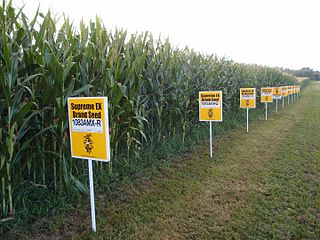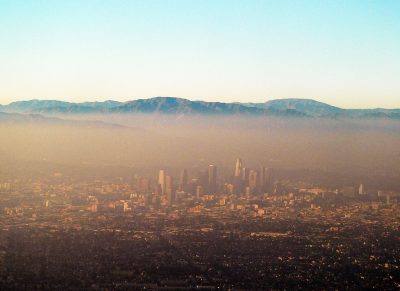 The Planning and Conservation League (PCL) is working to reform the corn-ethanol mandate in the federal Renewable Fuel Standard as the California leader of a national effort by the National Wildlife Federation (NWF). The corn-ethanol mandate has had many negative impacts in California including: devastating California’s commercial bee colonies, increasing the price of livestock feed, adding more smog causing ozone emissions, causing engine damage for small motor vehicles and yard equipment, wetlands and grasslands habitat loss, and potentially impeding state efforts to fight climate change through California’s own Low-Carbon Fuel Standard. NWF released the report Fueling Destruction: The Unintended Consequences of the Renewable Fuels Standard (corn-ethanol mandate) on Land, Water, and Wildlife detailing the national impacts and pointing the way to positive reform in December of 2016.
The Planning and Conservation League (PCL) is working to reform the corn-ethanol mandate in the federal Renewable Fuel Standard as the California leader of a national effort by the National Wildlife Federation (NWF). The corn-ethanol mandate has had many negative impacts in California including: devastating California’s commercial bee colonies, increasing the price of livestock feed, adding more smog causing ozone emissions, causing engine damage for small motor vehicles and yard equipment, wetlands and grasslands habitat loss, and potentially impeding state efforts to fight climate change through California’s own Low-Carbon Fuel Standard. NWF released the report Fueling Destruction: The Unintended Consequences of the Renewable Fuels Standard (corn-ethanol mandate) on Land, Water, and Wildlife detailing the national impacts and pointing the way to positive reform in December of 2016.
At present there is a unique collaboration between ranchers, the oil industry, duck-hunters, small motor users, and environmentalists like PCL, NWF, and Sierra Club – all working to reform the corn-ethanol mandate. We have come together and are actively working with members of Congress from both parties to draft and pass this reform in this session of Congress. You can add your voice to this campaign by contacting your member of Congress on our action page.
When Congress created the Renewable Fuel Standard (RFS), it was with the worthy intent of incentivizing home grown, renewable fuels that reduce America’s dependence on fossil fuels and decrease the amount of greenhouse gases in the atmosphere. Unfortunately, it has become clear that the RFS has had unintended consequences on the landscape that have been devastating for wildlife and wildlife habitat, and may even be undermining its own stated goals. A nationwide study from researchers from the University of Wisconsin, for instance, found that over 7.3 million acres of land — mostly grasslands — were converted to crop production between 2008 and 2012. While the RFS alone did not cause these changes, it was one the biggest drivers that led to the massive destruction of habitat on the landscape.
While the increased planting of corn for ethanol and soy for biodiesel has led to habitat destruction and water quality impacts, the next generation of cellulosic biofuels (those made from grasses, trees, and wastes) could result in much more positive environmental outcomes. Given that the RFS as currently constructed has not led to the expansion of cellulosic biofuels at nearly the pace envisioned by the law’s backers, changes must be made to place greater emphasis on supporting the development of these promising but still developing technologies and feedstocks, while de-emphasizing the production of ethanol and biodiesel and trying to mitigate their effects on the landscape. In recognition of the impacts to soil, water, and wildlife, there must be meaningful enforcement or strengthening of the habitat safeguards that are currently in the RFS but are not being implemented – as well as greater commitment to habitat conservation in order to mitigate the negative effects of the expanded, intensified agriculture that has been fueled, in part, by the RFS mandate. In order to achieve these conservation goals, an RFS reform package should encompass the following basic principles.
 Problem
Problem
In its current form, the Renewable Fuel Standard provides incentives to convert natural areas and wildlife habitat to large corporate farms.
- Since the ethanol mandate was enacted, more than 7 million acres of wildlife habitat and natural areas have been converted to crops, mostly corn for ethanol.
- Fewer than 5 percent of native grasslands remain.
- Ecologically important areas like the Prairie Potholes region – one of the prime habitat for ducks across the country – have seen the most intensive destruction of habitat.
This has led to water pollution – reducing supply and threatening public health – and destruction of habitat for wildlife and important pollinators such as bees and butterflies.
- Expanded and intensified farming means more pesticides, chemical fertilizers and erosion.
- Farm run-off has fueled serious impacts like toxic algal blooms in Lake Erie, which in 2014 poisoned drinking water for more than 400,000 people for three days.
- Farm run-off has also contributed to Gulf of Mexico’s “dead zone,” an area unfit for most aquatic life.
- Monarch butterfly populations have declined almost 90 percent, due in large part to loss of grassland habitat.
- Irrigation – often in marginal farm land – depletes aquifers faster than they can replenish, threatening water supplies.
There is a set of common-sense reforms that work for family farmers to protect public health and the environment – keeping us moving forward on our clean fuel goals the right way. The Planning and Conservation League along with our partners at the National Wildlife Federation and others are seeking to:
- Promote biofuels made from sources other than corn.
- Charge a small fee to oil companies and refiners to fund habitat restoration and conservation.
- Prohibit converting native wildlife habitat into cropland to grow corn for ethanol, a law already on the books.
- Limit the share of ethanol made from corn that can be used to meet renewable fuel targets.
 Reforming the Corn-Ethanol Mandate
Reforming the Corn-Ethanol Mandate
We must reform the federal corn-ethanol mandate to protect clean water and public health. In its current form, the RFS provides incentives to convert natural areas and wildlife habitat to large corporate farms growing GMO corn. This has led to water pollution – reducing supply and threatening public health – and destruction of habitat for wildlife and important pollinators such as bees and butterflies. There is a set of common-sense reforms that work for family farmers to protect public health and the environment – keeping us moving forward on our clean fuel goals the right way.
Environmental Principles for reform of the corn-ethanol mandate in the RFS
- The corn ethanol mandate needs to be ramped down – or at the very least capped at current levels and corn should not be allowed to qualify for the advanced biofuels pool.
- A limit should be placed on food-based biodiesel, and it should not be allowed to fill the conventional pool.
- Cellulosic ethanol and advanced biofuels should receive the appropriate incentives to truly foster the development and production of next generation fuels.
- The RFS should effectively prohibit the future conversion of native habitat to cropland and disallow any fuels produced on land brought into production after the law’s 2007 passage, from qualifying for credit.
- In order to mitigate the vast amount of wildlife habitat that has been lost on the landscape (due in large part to the expansion of corn for ethanol), a conservation mitigation fund to support habitat and water quality restoration and conservation should be linked to the RFS.
- An RFS reform effort must be targeted solely to the renewable fuels mandate and not used as an excuse to make broader changes to the Clean Air Act.
- The law should be clarified to prohibit invasive or noxious plants cultivated and made into biofuels from meeting the mandate.
The campaign is being worked on by Johnnie Carlson, PCL Operations & Campaigns Manger & National Wildlife Federation staff. To learn more about PCL’s campaign to reform the corn-ethanol mandate visit: https://www.pcl.org/campaigns/reform-corn/
To read the full report Fueling Destruction from NWF click here
SAVE THE DATE

PCL’s 2018 Assembly & Symposium
Will Be Held
Saturday, February 24th 2018
at the McGeorge School of Law
Email us to get on the mailing list.
